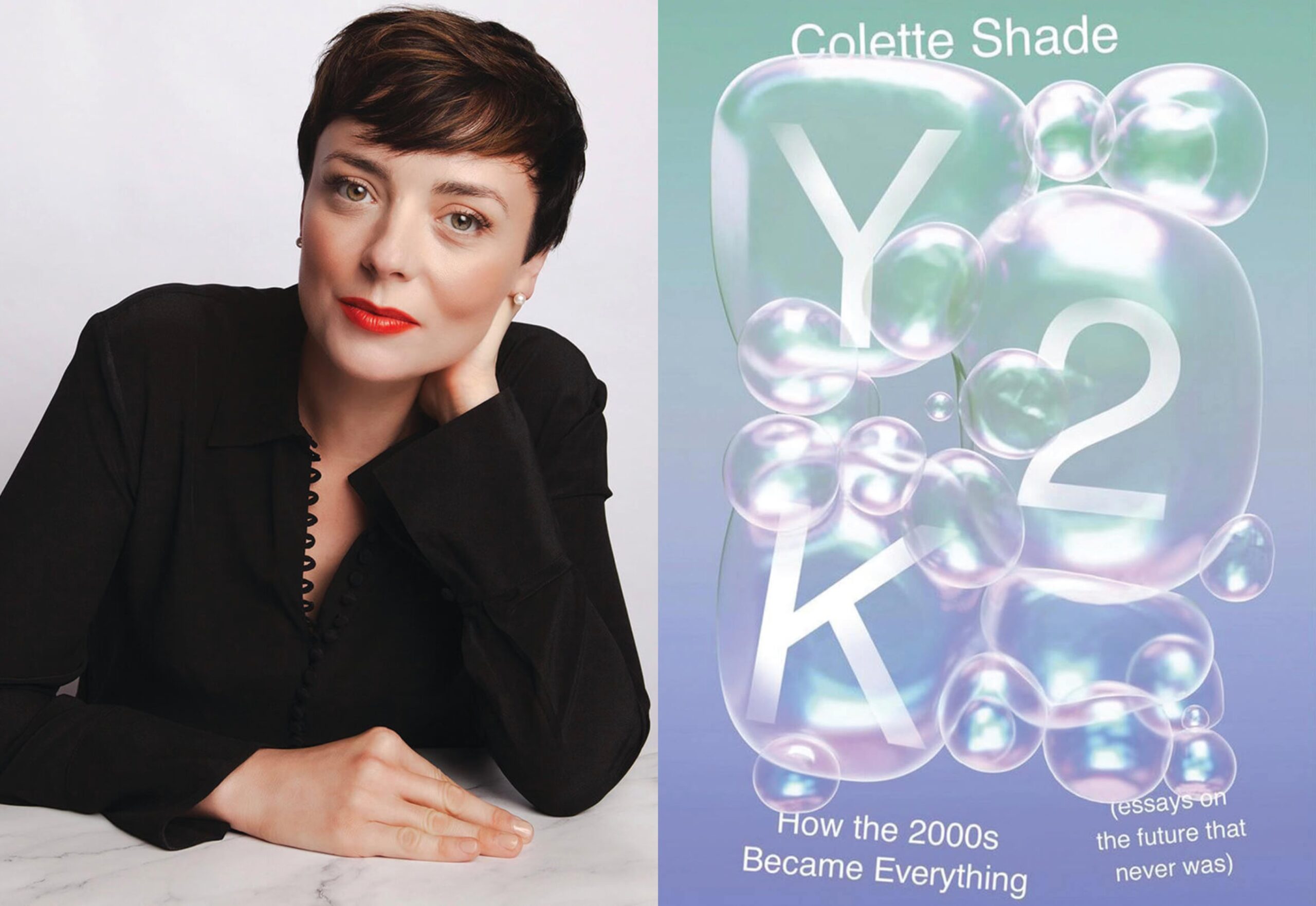Arts & Culture
Colette Shade’s Darkly Funny Collection of Essays is a History Lesson in the Y2K Era
Touching on everything from AIM to MTV, the Towson resident's first book, 'Y2K: How the 2000s Became Everything,' explores how the utopian dreams of the early digital age instead became a dystopian, neoliberal reality for Millennials.

A sharp cultural critic, Colette Shade has written for such zeitgeisty publications as Teen Vogue, Interview, The New Republic, The Baffler, The Nation, Current Affairs, Jezebel, and Gawker. She first gathered national attention for her viral essay, “‘Baltimore Is a Shithole’: Undisturbed Peace at the Maryland Hunt Cup,” in the aftermath of the death of Freddie Gray.
A decade later, the Towson resident’s first book, Y2K: How the 2000s Became Everything (Essays on the Future That Never Was), has been receiving rave reviews from the likes of The New York Times and NPR.
A coming-of-age story in the Y2K era—essentially the decade between the rise of the dot-com bubble and the 2008 economic collapse—How the 2000s Became Everything touches on Shade’s youthful cultural touch-stones, including chat rooms, AOL instant messaging, MTV, Paris Hilton, and gossip blogger Perez Hilton.
But more to the point of this often darkly funny collection of essays, she deftly interrogates the period’s omnipresent techno-optimism and how the utopian dreams of the early digital age instead became a dystopian, neoliberal reality for the Millennial generation, the first reported to be worse off than their parents.
How did this project get started?
I first got into this period in 2017, 2018. I was going through a tough time in my personal life, trying to figure out my career. I was also feeling despair about Trump having just been elected for the first time, and despair about climate change. I have family in the Bay Area, which I write about in the book, and there had been a couple of increasingly bad wildfire seasons there. I found myself looking back to my late elementary, middle, and high school years when I’m coming into awareness of the world. I had one idea of how the world would be, and it was so very different than the way it turned out.
At the same time, one way that I was dealing with problems in my life was looking at these nostalgia Instagram accounts that had scans of 1999 issues of Seventeen magazine, or Teen People, or Delia’s catalogs, or screenshots from Dawson’s Creek. This was a real escape for me.
The book may surprise some. It’s more tough history lesson than feel-good sentimental journey.
The original title was Y2K Essays on Puberty, Politics, and Popular Culture. This is a book that is interested in looking back, celebrating some aspects of the Y2K era, critiquing other aspects, and then taking both that critique and that celebration and looking at how it affects our present moment. I’ll give you a good example. I talked about this bestselling book called Dow 36,000, which came out in 1999, and had this preposterous argument that the stock market would triple in value within a couple of years—and this came out a few months before the dot-com bubble burst. The book’s co-author is now a prominent figure in the Trump administration.
Not that this collection is without irony and laughs. I’d forgotten about Mikhail Gorbachev doing a Pizza Hut commercial in 1998.
The plot of it is great. This young guy is saying, “Hey, it was great that Gorbachev opened up the Soviet Union because it allowed us to have more freedom and democracy.” Then you have this old man who says, yes, but it brought chaos, and they’re getting into this big argument over recent Soviet history. Then, Gorbachev walks in with his granddaughter, and it’s like, “Let’s all eat pizza together.” They agree to put their political differences aside and just agree that Pizza Hut is great, which, well, Pizza Hut is great.
But it’s a perfect distillation of this Y2K-era psychology of the 1990s and the 2000s. You had Thomas Friedman, The New York Times columnist, making this argument that no two countries that had a McDonald’s would ever go to war against each other. That’s just preposterous. Both Ukraine and Russia, for example, have had McDonald’s.
Exactly. The internet age is taking hold of pop culture, but it’s coinciding with globalism and a long neoliberal political turn that leads to the 2008 economic collapse and issues still unfolding today.
There was this psychological dream state that people were in between the dot-com bubble and the housing bubble collapse. You can see it in movies, in media headlines, and in the pop culture, and I very much use the pop culture in my own personal memories as a way to make sense of it for myself…Then what happened in 2008 just destroyed the social fabric and the lives of people who previously had been doing well. I grew up in an upper-middle-class family, and I couldn’t find a job after I graduated, which is not something I had been raised to believe was possible for me.